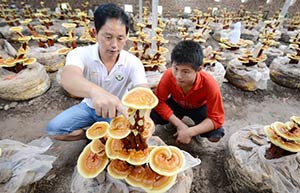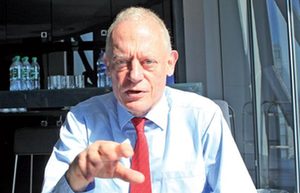Policy fears mount as FX reserves increase
By GAO CHANGXIN/XIE YUE (China Daily) Updated: 2014-06-13 07:09China's rapid accumulation of foreign exchange reserves is leading to difficulties in steering economic policy, analysts and officials with the foreign exchange regulator said on Thursday.
The nation will keep reserves at a "reasonable" level, officials of the State Administration of Foreign Exchange said in an online interview.
|
 |
"The excessively large foreign exchange reserves increase domestic money supply and create potential domestic inflation pressure," said Huang Guobo, chief economist of the SAFE. "They also put more pressure on the central bank to raise reserve requirement ratios and sterilize (inflows)."
Foreign currency reserves account for more than 80 percent of the central bank's assets, leading to an asset-liability mismatch that generates foreign exchange risks, Huang said.
Reserves reached $3.95 trillion at the end of March, having surged from $3.82 trillion at the end of 2013, official data released in April showed. The increase reflected continued trade surpluses and steady inflows of capital.
A rise in capital inflows and foreign direct investment last year forced the People's Bank of China to purchase foreign currency, partly to stop the yuan from appreciating. China's exports rose 7 percent year-on-year to $195.47 billion in May.
Xu Hongcai, a senior economist with the China Center for International Economic Exchanges, said he believed that $1 trillion would be sufficient for the nation's foreign exchange reserve.
He urged officials to focus on balancing the country's international payments so that reserves won't get even bigger.
"The fact that senior leaders acknowledge that the country's foreign exchange reserves are too big marks a historic change. Previously, many people believed that 'bigger was better' when it came to foreign reserves," said Xu.
|
 |
 |
| China's forex reserve to hit $4t: report | China's headache in cutting forex reserves |
- Mobile pay new 'gene' of finance
- CPC official calls for SME co-op between China, Finland
- China-Vietnam border trade cools amid bilateral tension
- Alibaba's first US presence 11 Main debuts
- Fair, legal business urged for sound market
- New China-Italy Center is a 'win-win' for growth
- Mobile gaming to grow further in 2014
- Zhaopin IPO raises $76 m on NYSE


















